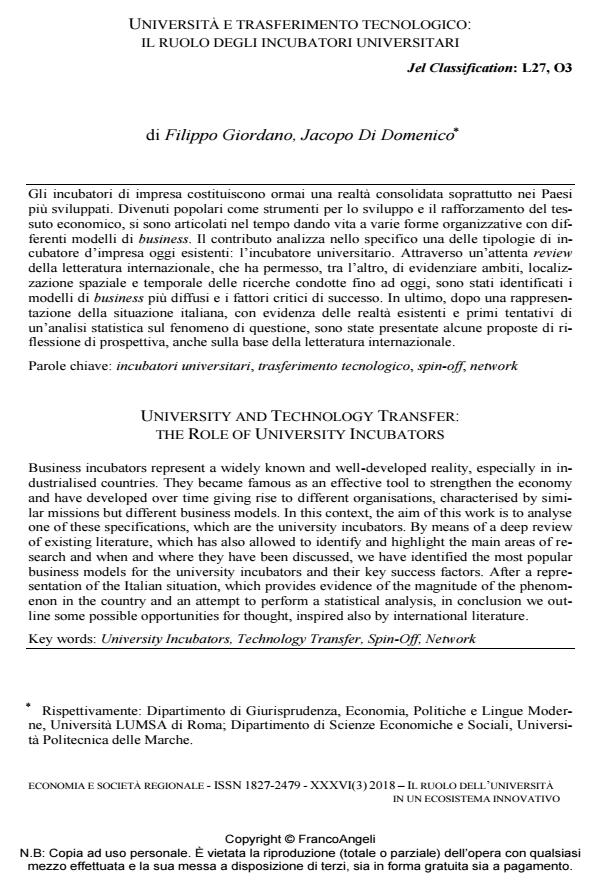University and technology transfer: the role of university incubators
Journal title ECONOMIA E SOCIETÀ REGIONALE
Author/s Filippo Giordano, Jacopo Di Domenico
Publishing Year 2018 Issue 2018/3
Language Italian Pages 10 P. 42-51 File size 351 KB
DOI 10.3280/ES2018-003004
DOI is like a bar code for intellectual property: to have more infomation
click here
Below, you can see the article first page
If you want to buy this article in PDF format, you can do it, following the instructions to buy download credits

FrancoAngeli is member of Publishers International Linking Association, Inc (PILA), a not-for-profit association which run the CrossRef service enabling links to and from online scholarly content.
Business incubators represent a widely known and well-developed reality, especially in industrialised countries. They became famous as an effective tool to strengthen the economy and have developed over time giving rise to different organisations, characterised by similar missions but different business models. In this context, the aim of this work is to analyse one of these specifications, which are the university incubators. By means of a deep review of existing literature, which has also allowed to identify and highlight the main areas of research and when and where they have been discussed, we have identified the most popular business models for the university incubators and their key success factors. After a representation of the Italian situation, which provides evidence of the magnitude of the phenomenon in the country and an attempt to perform a statistical analysis, in conclusion we outline some possible opportunities for thought, inspired also by international literature.
Keywords: University Incubators, Technology Transfer, Spin-Off, Network
Jel codes: L27, O3
Filippo Giordano, Jacopo Di Domenico, Università e trasferimento tecnologico: il ruolo degli incubatori universitari in "ECONOMIA E SOCIETÀ REGIONALE " 3/2018, pp 42-51, DOI: 10.3280/ES2018-003004